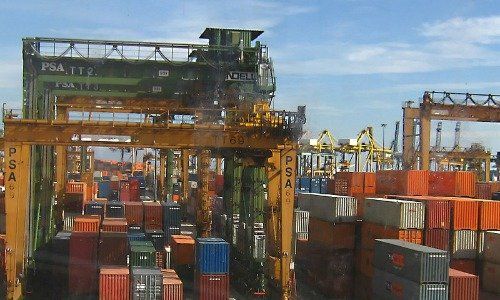Melaka Gateway Unlikely to Outshine Singapore Ports Anytime Soon
The likely shelving of a major port and railroad project by the new government in Malaysia will ease concern that Singapore's port would lose out as a consequence of the investments, experts told finews.asia.
The Melaka Gateway Project, or MGP, and the East Coast Rail Link, or ECRL, are being reviewed and unlikely to materialize under the newly elected government in Malaysia, especially if they are found not commercially viable, Tang Siew Mun, head of ASEAN studies at ISEA-Yusof Isak Institute told finews.asia in an interview.
«Most of the Malaysian ports are under-utilized...if Melaka Gateway fails, we (Malaysians) may go the route of Sri Lanka, and may be forced to sell off assets and the Straits of Malacca; it will be a nightmare for Singapore, Japan, and others who face huge uncertainties on the control of the South China Sea,» said Tang at an event organized by SwissCham Singapore last Friday.
However, Tang is more optimistic about the progress of Kuantan port projects because of the involvement of private enterprises. IJM Corporation in 2013 sold a 40 percent stake in Kuantan port to China’s Guangxi Beibu Gulf International Port. The nearby Kuantan industrial park also attracted Chinese investments, with a total of 19 billion ringgit ($4.7 billion) from six major manufacturers, according to Malaysian newspaper «The Star».
Loans Disguised as Investments
Some infrastructure projects involve soft loans from Chinese firms disguised as «investments», Tang said. Chinese banks are known to employ complex financial engineering tools to disguise risky loans as «investments» so as bypass banking regulations designed to limit risks in financial systems.
«There is also a public debate as to whether Chinese investment is about loans or about foreign direct investment. Data show that both types of financing are involved, with China providing the technology in the projects financed by mega loans....the crowding out of local small- and mid-sized enterprises and the relatively high economic risks of mega projects that are funded by loans guaranteed by the government rather than through direct investments (are concerns),» the ISEAS-Yusof Ishak Institute said in its February report.
- Page 1 of 2
- Next >>























